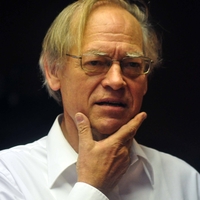
Gnana Patrick
Dr. Patrick GnanapragasamProfessor and Head of the Department of Christian Studies, University of Madras, India
less
Related Authors
Johannes Zachhuber
University of Oxford
Martin van Bruinessen
Universiteit Utrecht
Brandon Gallaher
University of Exeter
Andrei Orlov
Marquette University
Carole Cusack
The University of Sydney
Karl Baier
University of Vienna
Christoph Uehlinger
University of Zurich, Switzerland
Eckart Otto
Ludwig-Maximilians-Universität München
tarmo toom
University of Tartu
Beat Weber
Theologisches Seminar Bienenberg, Liestal (Siwtzerland)










Uploads
Papers by Gnana Patrick
characteristics to AI. In usages like “apocalyptic AI,” “homo
deus,” “AI as Imago Dei,” “virtual immortality,” etc., we
find religious characteristics being attributed to AI related
processes. It would do well to critically analyse such attributes
from the perspective of religious studies to understand their
impact upon the dynamics of religions. One such core dynamic,
acknowledged invariably in religious and theological studies,
is that of the experience of “transcendence.” Several studies
on religious transcendence analyse its “vertical” and
“horizontal” aspects down through historical epochs. The
modern era, in particular, is understood to have induced
various shades of immanentism, along with an inability to
transcendence. This paper studies some selected religious
attributes made to AI and analyse their impact upon the
experience of transcendence today
characteristics to AI. In usages like “apocalyptic AI,” “homo
deus,” “AI as Imago Dei,” “virtual immortality,” etc., we
find religious characteristics being attributed to AI related
processes. It would do well to critically analyse such attributes
from the perspective of religious studies to understand their
impact upon the dynamics of religions. One such core dynamic,
acknowledged invariably in religious and theological studies,
is that of the experience of “transcendence.” Several studies
on religious transcendence analyse its “vertical” and
“horizontal” aspects down through historical epochs. The
modern era, in particular, is understood to have induced
various shades of immanentism, along with an inability to
transcendence. This paper studies some selected religious
attributes made to AI and analyse their impact upon the
experience of transcendence today